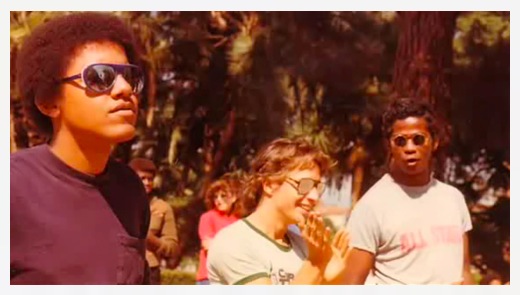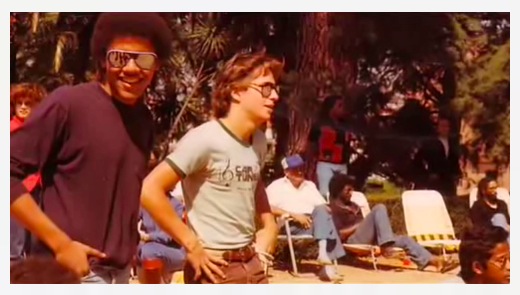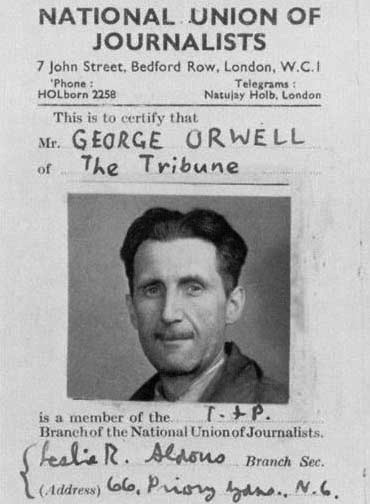“It seems the only way to write a half decent book is to worry oneself sick on an hourly basis that one is producing a complete disaster.”
Archives for 2010
What makes Emma Bovary so interesting?
Sometimes in reading at random, weird patterns emerge. The last couple of days I ran across these two quotes, both trashing sacred-cow novelists. In the first, from The Paris Review in 1963, Katherine Anne Porter explains why she detests F. Scott Fitzgerald.
Not only didn’t I like [Fitzgerald’s] writing, but I didn’t like the people he wrote about. I thought they weren’t worth thinking about, and I still think so. It seems to me that your human beings have to have some kind of meaning. I just can’t be interested in those perfectly stupid meaningless lives.
The next is from B.R. Myers’ acid review of Jonathan Franzen’s new novel, Freedom, in The Atlantic:
One opens a new novel and is promptly introduced to some dull minor characters. Tiring of them, one skims ahead to meet the leads, only to realize: those minor characters are the leads. A common experience for even the occasional reader of contemporary fiction, it never fails to make the heart sink. The problem is not only one of craft or execution. Characters are now conceived as if the whole point of literature were to create plausible likenesses of the folks next door. They have their little worries, but so what? Do writers really believe that every unhappy family is special? … Granted, nonentities are people too, and a good storyteller can interest us in just about anybody, as Madame Bovary demonstrates. But … whatever is wrong with these people [i.e. the characters in Freedom] does not matter.
I won’t get into the mean-spiritedness of these reviews, except to say that they capture why I could never be a book critic. (I do post book reviews on this blog, but never negative ones. If I can’t recommend a book, I simply don’t mention it.) And I’m not especially interested in the merits of these opinions, either, though Porter’s dismissal of Fitzgerald seems asinine to me. (I haven’t read Freedom.)
But they do raise an interesting question: what makes an insipid character worth writing and reading about? Obviously it is not as simple as “dull characters, dull book,” as Myers’ example of Madame Bovary makes clear. (My choice would have been Mrs. Dalloway). Is it only the skill of the novelist that grants significance to minor lives? Or do the shallow protagonists of successful books share common characteristics — are they shallow in some distinctive, dramatically advantageous way? If it had been Flaubert rather than Franzen writing about ordinary folks in Minnesota, would it have made a difference to readers like B.R. Myers, who evidently feels the whole project was doomed from the start merely by Franzen’s choice of subject?
Photo of the Day
“Strawberries” by Edwin Morgan
There were never strawberries
let the sun beat
let the storm wash the plates
(Hat tip: My friend Michael Malone blogged this poem upon Edwin Morgan’s death a few weeks ago. More about Morgan here.)
Orwell of the Tribune
Katherine Anne Porter: This thing between me and my writing
This thing between me and my writing is the strongest bond I have ever had — stronger than any bond or any engagement with any human being or with any other work I’ve ever done.
It’s All Been Done
For a crime-novel writer of any quality or ambition — for a serious writer working in any genre, I imagine — there is always the little voice whispering, “It’s all been done.” How can you possibly produce, say, a courtroom drama that is original, fresh, unpredictable when there have been ten thousand courtroom dramas already written? (And that doesn’t count the endless loop of “Law & Order” reruns on basic cable.) The ten-thousand-and-first, no matter how clever or well crafted, will inevitably feel derivative, formulaic, small.
On the other hand, writers choose to work in a genre for good reasons. I write crime stories because, first, the situations are dramatic and emotionally resonant (“bad men do what good men dream”). Storytellers need drama; crime stories have it in spades. But I also like writing crime stories because they come with a ready-made shape. A murder mystery will proceed, one way or another, from the crime to the unmasking of the criminal; a courtroom drama from indictment to trial to verdict; a heist from the planning to the robbery to the escape (or failure to escape). You can play around with these formulas as much as you like, but the formulas are there and that is no small thing when you are staring at a blank computer screen. (There is another, more obvious advantage to writing genre novels, of course: people actually read them. But we’re talking about an artistic problem here, not a commercial one.)
So that is the bargain. And the little voice whispering “It’s all been done” generally doesn’t bother me. On the contrary, I find the conventions of the genre stimulating. Twice now, I’ve had a fine time playing with the tropes of police procedurals, subverting them in my first novel (“no unreliable narrators!”) and taking them out for a spin in a strange new neighborhood (Boston in the Strangler era) in my second. All been done? Well, let’s do it again, in a new way.
In fact, I try quite consciously to find a “precursor text” for all my books, that is, a book or film (usually several) that will give shape to the story I am trying to tell, particularly in the early stages of writing when the story is still unformed.* You don’t have to dig too deeply in The Strangler, for example, to see the influence of L.A. Confidential. All writers do this, with varying degrees of awareness. How could any writer not be influenced by the books he has read and loved? Even using the term “precursor text” to describe the practice is something I borrowed from one of my betters, novelist David Lodge, who always identifies a precursor for his novels.
But with book three, for some reason I listened to that little voice too much. I let the genre novelist’s insecurity get to me. The book is, in the end, a courtroom drama. It is narrated by a man whose teenage son is accused of killing a classmate, and the centerpiece of the novel is the boy’s trial. The trouble was, when it came to writing the critical courtroom section of the book, I was too determined to avoid cliché, to write a courtroom drama utterly unlike any of the ten thousand that have come before — a fool’s errand, but then it’s easy to make a fool of yourself in this business. So out went the usual pre-trial strategy talks. Out went the tried and true good-cop-bad-cop interrogation of the defendant. Out went the dramatic parade into the courtroom for the arraignment. Any scene that felt remotely secondhand was cut or truncated.
Monday I heard from my editor that this section of the manuscript needs a rewrite to restore at least some of these conventional scenes. After I had ruthlessly excised every scene that had ever appeared in a legal novel, she suggested, there just wasn’t enough drama or mystery left. The storytelling was fresh and innovative, yes. It just wasn’t very compelling.
It ought to have been devastating news. This is the third or fourth major rewrite of the manuscript (I’ve lost count). And of course I was disappointed. The trial sequence ought to have been the most sure-footed part of the book. As a former trial lawyer, it’s what I know best. Worse, I had resisted making these very changes in previous rewrites.
But I see now, after taking a day or two to wrap my brain around the problem, that my editor was right. The formulas work. Subvert them, twist them, depart from them by all means. Be daring and original. But remember that story comes first. It is a mistake to sacrifice good storytelling to some abstract conception of immaculate originality. It has all been done, it’s true. The trick, so late in the life of the genre, is to innovate just enough — make it new, but keep what works.
Another rewrite. So it goes.
* Note to the book-nerds out there: Yes, yes, I know, the term “precursor text” is borrowed from Harold Bloom and I’m not using it properly. Obviously I am talking about a purposeful, self-aware sort of borrowing, which is not the “anxiety of influence” that Bloom means. The term is a useful descriptor, though, and I’ve been using it this way for years in plotting my books. No emails, please, about what a boob I am to have misappropriated it. Emails calling me a boob for other reasons are of course always welcome.
The scope-severity paradox
The more victims, the less likely we are to respond.
[A recent study] is the first to show that the bias toward feeling empathy for a single individual versus many — known as the identifiable victim bias — causes people to make judgments based on emotion that are disproportionate to the severity of a crime.
“The inspiration for the study was the observation that we tend to focus an extraordinary amount of attention and resources to crimes that have a really small number of victims, and have a harder time remaining engaged to larger scale kinds of crime,” said psychologist Loran Nordgren of Northwestern University, lead author of the paper Aug. 25 in Social Psychological and Personality Science (.pdf).
The bias, which the researchers named the scope-severity paradox, has implications for a wide variety of fields, including the politics and media coverage of large-scale issues such as climate change or mass genocide.
“It fits well with a line of research that shows that as the number of people who are victims of some problem [rises] — whether it’s a crime or a famine — the responsiveness to it, and the likelihood of taking action to reduce the problem, decreases,” said psychologist Paul Slovic of the University of Oregon, who was not involved in the study.
It has to do with the way empathy works, Slovic said. People empathize with people by putting themselves in the other person’s shoes. The more shoes there are, the harder it is to empathize with any single individual. People don’t multiply their feelings of empathy by the number of people involved.


